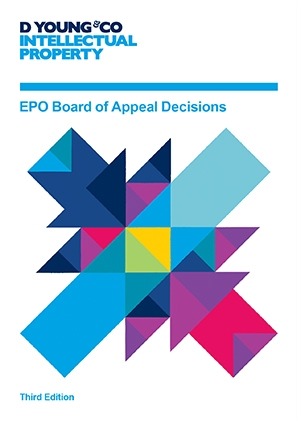Video conferencing in oral proceedings at the EPO
Although oral proceedings before the examining division by video conference have been permitted by the European Patent Office (EPO) since 1998, until recently there have been very few requests from applicants to proceed in this manner. Partly as a consequence of the number of oral proceeding requests increasing and also partly as a response to the coronavirus (Covid-19) situation, the EPO has made steps to make video conference oral proceedings the default – with the issuing of a consultation paper and a decision from the President.
Guide to Vico at the EPO
Update 12 November 2020: The EPO is moving towards the use of video conferencing (ViCo) as the “new normal” for oral proceedings. We have produced a guide drawing from our experience of ex parte and inter partes oral proceedings before the EPO by video conference to aid participants of such proceedings in what they might expect and how best to prepare. Our “Client Checklist for ViCo” is included for clients attending a ViCo hearing.
EPO ViCo GuideUpdate (21 April 2020)
The EPO has released a decision from the President and draft notice regarding a pilot project for oral proceedings by video conference before the opposition division. The decision is due to enter force on 04 May 2020 and is set to run until 30 April 2021.
During this period, if all of the parties involved (together with the opposition division) agree, then the oral proceedings are permitted to be held by video conference. Such a request is preferably to be expressed prior to the summons being issued. However, the EPO is open to the possibility of oral proceedings being conducted by video conference after the summons has been issued if all parties (and the opposition division themselves) are agreeable.
The notice makes it clear that situations in which the oral proceedings cannot proceed by video conference include where evidence is to be taken and (until such time as technical infrastructure is provided) the need for interpretation (for example translation).
As previously discussed, the need to hold the proceedings publicly will be met by providing a dedicated room in the EPO in which the oral proceedings can be watched. Remote access will also be provided if requested in advance.
As with the oral proceedings before the examining division, the decision allows for a party to be represented from multiple locations
The decision from the President relates to oral proceedings before examining divisions. As of 02 April 2020, oral proceedings by video conference are to be the default. Oral proceedings will still be permitted in person where there are serious reasons (which can be raised by either the applicant or the examining division) against holding the oral proceedings by video conference such as the need to take oral evidence. The decision also envisions the possibility of applicants (or examiners) attending from separate remote locations, which could enable applicants and representatives based in different countries to participate in the same proceedings.
The decision sets out transitional provisions as follows - summons notified on or after 02 April 2020 will take place by video conference as a default. For summons already issued prior to 02 April 2020, the oral proceedings will continue by video conference if this was indicated by the summons and otherwise the applicant can agree to have the oral proceedings conducted by video conference.
The decision does not relate to oral proceedings either before Boards of Appeal or before the opposition divisions. The latter of these is, however, considered by a consultation paper issued at the 22nd Meeting of the Standing Advisory Committee of the EPO.
Here, the EPO has indicated that it wishes to explicitly allow opposition oral proceedings to take place by video conference as soon as possible. Similar but slightly more extensive reasons are suggested for why this might not be appropriate, which include cases where there is high public interest or where a large number of parties make proper conduct difficult.
Opposition oral proceedings can often be more complicated than those before the examining division. Given that parties can be represented using any official language of the EPC, translation is significantly more common in opposition proceedings than in examination proceedings. The consultation paper does not provide a specific solution to how translation would be achieved – merely noting that it would be subject to a feasible technical solution.
A further complexity is that opposition proceedings (in contrast to examining division proceedings) are open to the public. The consultation paper envisions this being maintained by streaming the proceedings to a video conference room at the EPO or by making an online link available on request after being advertised via the EPO website. This is preferred to the alternative of open streaming in order to protect personality rights. We note, however, that the EPO’s prohibition on oral proceedings being recorded would also be impossible to enforce or detect if streaming to members of the public were carried out, although this is not specifically addressed by the paper.
Although oral proceedings before Boards of Appeal is not addressed by the consultation paper, similar obstacles would have to be overcome since such oral proceedings are also open to the public and (in the case of opposition appeals) could necessitate translation.
The ability for applicants to participate in oral proceedings remote from their representative could be an attractive proposition, as will the time-savings encountered due to representatives no longer being required to travel to Munich, the Hague or Berlin. It also goes without saying that in the current climate, removing the need for anyone to travel or to congregate is better for everyone. However, there are clearly obstacles to be overcome by the EPO to make opposition division oral proceedings practicable.


